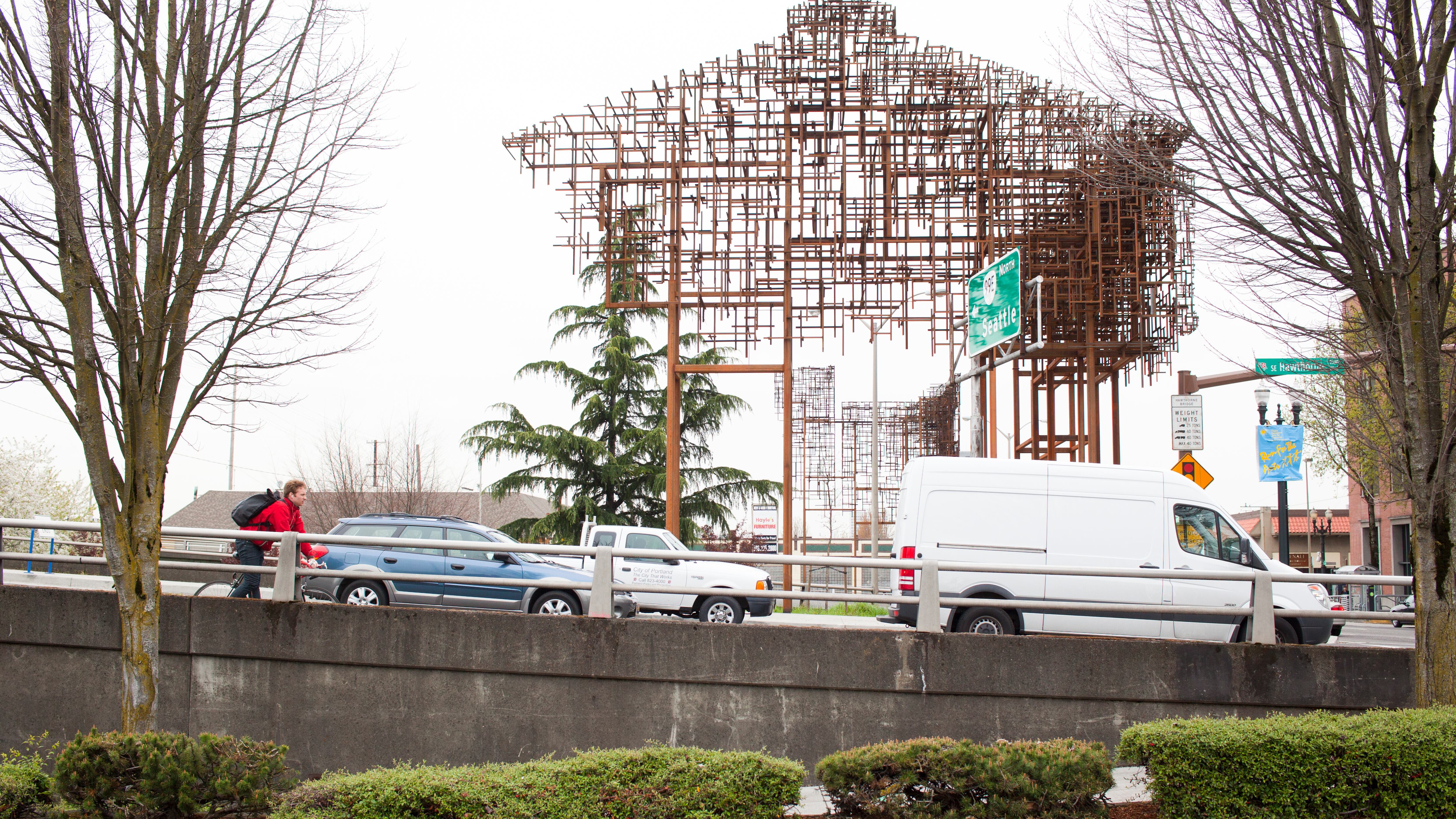The Regional Arts and Culture Council has contracted with the city of Portland for almost 30 years to provide arts grants for murals, sculptures and budding artists. Governed by a board of directors, RACC performs the role a city arts office would, if one existed.
But in July, the city announced it would pull the plug on RACC’s city funding when its current contract expires next summer. The decision followed months of simmering tensions between city officials and the arts nonprofit, with members of the City Council casting doubts on the effectiveness and financial transparency of the group.
After the city commissioner who oversees arts, Dan Ryan, told RACC in July that the city would cut off its funding next summer, the group’s board offered a strong rebuke of Ryan’s decision in a series of public letters. “The potential for lasting damage to a fragile ecosystem that has experienced tremendous challenges in the last three years is real and considerable,” wrote RACC executive director Carol Tatch on Aug. 11, calling Ryan’s decision a “grave mistake.”
The temperature in recent days has only risen.
In a Sept. 21 letter, Ryan requested that RACC provide contact information for all grant recipients who are funneled city dollars by no later than this Friday, Sept. 29—a request Ryan said he first made in late August.
“Regrettably, RACC has still not provided the City with this information. The information is not proprietary because RACC provides the grants using public City funds and on behalf of the City as the City’s arts agent,” Ryan wrote. “I am hereby formally requesting, as the City’s authorized representative, a copy of these records in connection with RACC’s performance of the services outlined in the contract.”
Ryan wrote that he would withhold RACC’s next quarterly payment from the city (around $1.3 million) and launch an audit if it didn’t provide the names and contact information of RACC’s grant recipients by Friday afternoon. “We view this action as a last resort,” Ryan wrote.
Ryan’s office tells WW that RACC’s quarterly payment from the city is due Tuesday, Sept. 26; Ryan is withholding it until he hears back from RACC.
The city has in recent years provided about 83% of RACC’s annual funding.
In a memo to RACC’s board last week, executive director Tatch wrote that Ryan’s office had released “targeted misinformation” about the RACC in the days following his decision to end funding next summer. (Ryan’s office says that allegation is “categorically false.”)
RACC even hired a PR firm called C|3 to market RACC in an attempt to stop the city from cutting off funding. Tatch wrote to the board that the firm had helped Tatch snag appearances on local television programs. “We have had very positive feedback from the community, as they are able to ask questions and collaborate with RACC on ways to respond and activate for this shared effort to keep the funding with RACC, rather than offered out through [requests for proposals] with organizations that do not have RACC’s expertise and do not seek equity-driven outcomes,” Tatch wrote to her board.
RACC did not respond to a request for comment.

